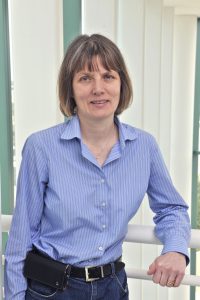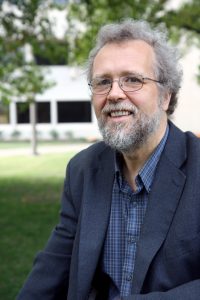
A new research programme led by scientists at the Centre for Cancer Immunology will give important insight into an integral part of our immune system and the fight against cancer.
Macrophages are large white blood cells that destroy foreign bodies by įeatingš them, and in addition to being able to engulf tumour cells, can also interact with T cells in the immune system to stimulate anti-tumour immunity.
The new study will be led by Professors Sally Ward and Raimund Ober and funded with a ┬Ż2.7m grant from the Wellcome Trust. It aims to analyse how antigens (a protein from the foreign bodies such as bacteria or viruses, but also possibly from cancer cells), bound to immune system proteins called antibodies, travel within the macrophage. The overall goal is to understand how these proteins behave in macrophages, thereby transmitting information to other immune cells.
Until recently, methodology to study processes such as the movement of proteins within cells that occur on microscopic scales (around one millionth of a centimeter) at very high resolution has been unavailable.
But Professors Ward and Ober have developed advanced microscopy techniques that can investigate these processes.
Professor Ward said: ŌĆ£Antigen presenting cells such as macrophages form a key part of the immune system due to their ability to transmit information to cells such as T cells about the components of the body, including cancers. But we need to understand this process in more depth to enable us to use it to fight cancer. We will use the information gained from this study to design molecular approaches to improve the immune response against tumours during immunotherapy.ŌĆØ

Professor Ober added: ŌĆ£We have developed microscopy techniques that allow proteins to be tracked in real-time at unprecedented resolution so that even individual molecules can be tracked as they move within a cell such as a macrophage. We are extremely grateful to the Wellcome Trust for this grant that will enable us to study this important area.ŌĆØ
Professors Ward and Ober joined the Centre for Cancer Immunology, University of Southampton, from Texas AM University last year and will be heading up a joint multidisciplinary laboratory. The University of SouthamptonŌĆÖs international reputation for translational research was one of the major attractions for them when deciding to return to the UK.
Professor Ward said: ŌĆ£In Southampton we can see our working model of making engineered antibodies, studying their cellular behavior and then testing in mouse models being translated to the clinic in collaboration with the clinicians and Clinical Trials Unit. This possibility was a major attraction ŌĆō this Centre is so translational, and we anticipate that this will enable us to move our research further along the clinical line than would be possible in many other institutions.ŌĆØ